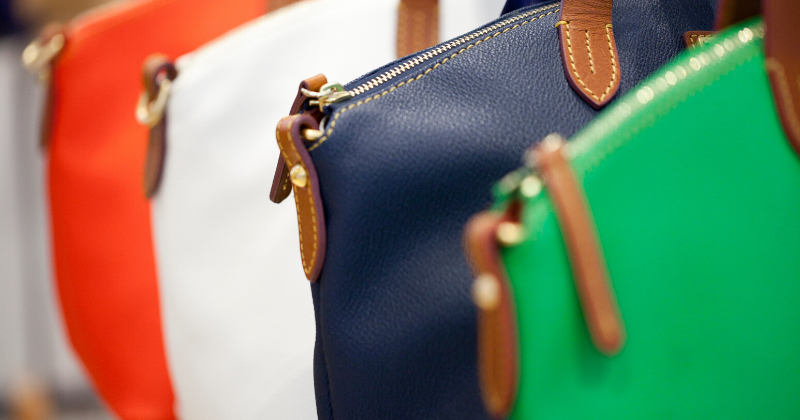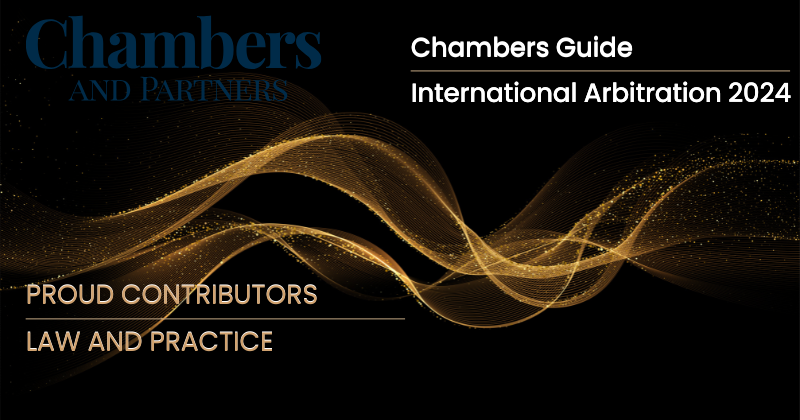The infiltration of counterfeit products in the market infringes on the intellectual property rights of the rightful owners of the products, since counterfeiters pass off phoney goods as the products of legitimate manufacturers, when in actual fact, they are not. This passing off denies the genuine manufacturers revenue, as they find it diffi cult for their products to compete with the invariably cheaper non-genuine products. Inability to compete with counterfeiters often comes with a dip in profi tability which, in turn, leads to loss of employment due to downsizing or worse still, closing down of the business altogether. The government also loses out on taxes as counterfeiters are prone to evade tax while the genuine manufacturer simultaneously experiences a slump in sales and therefore decrease taxable income.
According to the Kenya Association of Manufacturers, local manufacturers lose an estimated sum of KES 30 billion (USD 300 million) in revenue while the national government is deprived of KES 6 billion (USD 60 million) in taxes, due to counterfeit products, annually.
Counterfeit products also pose a health risk to consumers, as such products may at times contain excessive amounts of hazardous substances as compared to genuine products. Similarly, counterfeit farm inputs such as seeds or fertilizers, pose a serious threat to a nation’s food security as their use may result in poor yields or crop failures.
All in all, counterfeit goods seem to have pervaded all sectors of our country’s economy, noting the estimation by the Anti-Counterfeit Authority (the Authority) that one in every fi ve (5) products sold in the Kenyan market is counterfeit. It is therefore very much in the public interest that the war against counterfeit is swiftly and decisively won.
Legal Framework
To address the concerns posed by counterfeit goods, the Anti-Counterfeit Act, 2008 (the Act) was enacted to provide the legal and institutional framework for tackling the vice. The Authority (formerly known as the Anti-Counterfeit Agency) is established under section 3 of the Act. The Authority’s responsibilities are centred on curbing counterfeit products in the market through enlightening and informing the public on matters relating to counterfeiting, combating counterfeiting trade and other dealings in counterfeit goods through devising and promoting training programmes on fi ghting counterfeiting and advising the government on policies and measures concerning the protection of intellectual property rights as well as the extent of counterfeiting. The Authority’s Board (the Board) is established under section 6 of the Act and draws representation from other stakeholders, including the Att orney General’s offi ce, the Kenya Revenue Authority, the Kenya Bureau of Standards and the Kenya Association of Manufacturers amongst others.
The Board is authorised under section 22 of the Act to appoint inspectors who are tasked with enforcing the provisions of the Act. Board members, police offi cers, customs offi cials, trade mark and patent examiners, seed and plant inspectors and public health inspectors are also designated as inspectors under the Act. The idea is to ensure as much representation or coverage as possible from other public institutions, so that the Act can be widely enforced. However, the Authority’s powers appear to have been somewhat clipped as section 30 (1) of the Act empowers the Director of Public Prosecutions (DPP) to appoint prosecutors for counterfeiting cases.
Under section 23 of the Act, an inspector has the power to enter suspected premises and to search and ascertain whether the goods are genuine and to take steps reasonably necessary to terminate the manufacturing, production or making of counterfeit goods. Section 23 (3) of the Act specifically empowers an inspector to arrest with or without a warrant, any person whom he suspects on reasonable grounds of having committed any offence under the Act and an inspector may search and detain such a person. The discharge of an inspector’s functions is not to be taken lightly, as the obstruction of an Inspector from undertaking his duties amounts to a criminal offence under section 24 of the Act and shall be liable, upon conviction, to imprisonment for a term not exceeding three (3) years or a fine not exceeding KES 2 million (USD 20,000) or both. Section 25 of the Act provides details on what the inspector is to do upon seizing the suspected counterfeit goods. The inspector is required to seal, sort and take an inventory of the seized goods, furnish the complainant and the owner of the goods with the inventory, secure the goods by relocating them to a safe place and notify the concerned parties of the new location of goods. An aggrieved party may petition Court for a declaration that the goods are not counterfeit and an order for the return of the seized goods to him or her.
Section 32 of the Act lists the general offences pertaining to counterfeiting such as possession, sale, distribution or importation of counterfeit goods. Equally, the possession of any labels, patches, wrapping, containers or documentation bearing a counterfeit mark is also an offence. The aiding or abetting of any of the foregoing is also outlawed. The penalty for contravention of this section of the Act is stiff, in the case of a first conviction, being imprisonment for a term not exceeding five (5) years, or to a fine, in respect of each article or item involved in the particular act of dealing in counterfeit goods to which the offence relates, not less than three (3) times the value of the prevailing retail price of the goods, or both. In the case of a second or any subsequent conviction, to imprisonment for a term not exceeding fifteen (15) years, or to a fine, not less than five (5) times the value of the prevailing retail price of the goods, or both.
A complaints mechanism is laid out in section 33 of the Act. It allows the holder of an intellectual property right to lodge a complaint under the Act with the Executive Director of the Agency. The complainant is also required, together with lodging the complaint, to furnish such information or particulars to demonstrate that on the face of it, the goods in question are counterfeit. If the Executive Director is duly satisfied with the information, he may order such necessary steps be taken under section 23 of the Act. However, an inspector is not precluded from taking the appropriate steps on his own motion in relation to any dealing in counterfeit goods.
The holders of trademarks, copyrights and other trade names of goods or works to be imported into Kenya, can record such interests with the Agency for protection as per section 25 of the Act. The application is in the prescribed form and the protection comes into force from the date on which such interests are recorded. The duration of protection is one (1) year from the date the interest was recorded by the Agency or the period of protection of the intellectual property right, whichever is shorter.
A person who has suffered damage following wrongful seizure of goods is entitled to claim for compensation under section 34 (7) of the Act.
Judicial Pronouncements
The Kenyan Courts have made various pronouncements and developed jurisprudence on counterfeiting matters. In Wilson Muriithi Kariuki t/a Wiskam Agencies v Surgipharm Limited (2012) eKLR, the Applicant was seeking an interlocutory injunctive order restraining the Respondent from distributing the alleged counterfeit products in the market. The High Court held that the party seeking an interlocutory injunction must demonstrate, as it the normin injunction cases, that it has a prima facie case with probability of success; that if the order sought is not granted, he risks suffering irreparable damage that cannot be compensated by way of damages; and if the Court is in doubt, then it is to determine the matter on a balance of convenience. Importantly, the Applicant must be a right holder.
In Republic v Anti Counterfeit Agency & 3 others Ex-parte Omega Chalk Industries (1993) Limited & another (2015) eKLR, the High Court emphasised that there is no need for the Authority to notify an individual of an impending seizure exercise as follows: “I agree with the interested party that a reading of the above provisions and taking into account the mischief that these provisions were meant to cure, it would defeat the purpose of the Act to require that the person in whose possession suspected counterfeit goods are to be heard before the power of seizure is exercised. Any wrongful seizure of the goods is to be dealt with under section 25 of the Act.”
In Platinum Distillers Limited v Attorney General & 4 Others (2017) eKLR, the Court held that the power to commence and prosecute counterfeit cases falls within the purview of the DPP, and that the power should be exercised independently and there should also be no perception that the DPP is acting under the direction or instigation of anyone else. However, the Court has the inherent power to discontinue the prosecution if it is opined that allowing the prosecution to continue would be an abuse of the Court process or result in a breach of the accused’s fundamental rights. The Court further noted that the lack of a proper factual basis for the prosecution can be another ground for termination of proceedings.
In Anti-Counterfeit Agency v Barloworld Limited & another (2018) eKLR, the Court of Appeal held that public interest should be taken into account when issuing injunctive reliefs pending hearing and determination of the main appeal. In this matter, the Agency had applied for a stay of execution with the intention that counterfeit products should not be released to the market.
Executive Forum and Working Group
A point of concern has been a perceived lack of coordination or cooperation between complimentary government agencies in the war on counterfeits. However, this issue has been addressed by the formation of the Inter-Agency Anti-Illicit Trade Executive Forum (Executive Forum) and the Inter-Agency Anti-Illicit Trade TechnicalWorking Group (Working Group) established under Gazette Notice No. 7270 of 2018.
The Executive Forum is chaired by the Principal Secretary, State Department for Trade with the Head of the Authority being the secretary. Its functions include advising the Cabinet Secretary for Trade on all matters concerning illicit trade as well as the appropriate policies, laws and regulations required to strengthen the war on illicit trade. One the other hand, the functions of the Working Group include developing a national strategy to combat illicit trade, coordination of surveillance and investigations on the source of illicit merchandise, coordination of the enforcement of laws, regulations and policies dealing with illicit trade and conducting public education on illicit trade.
The establishment of the Executive Forum and the Working Group is a step in the right direction, as the idea behind their formation is to infuse the much needed synchrony and coordination in the war on counterfeits.





